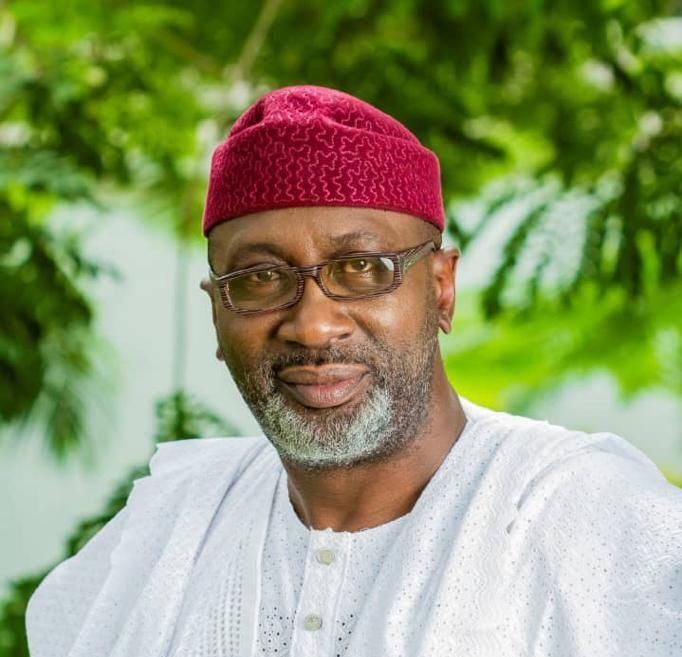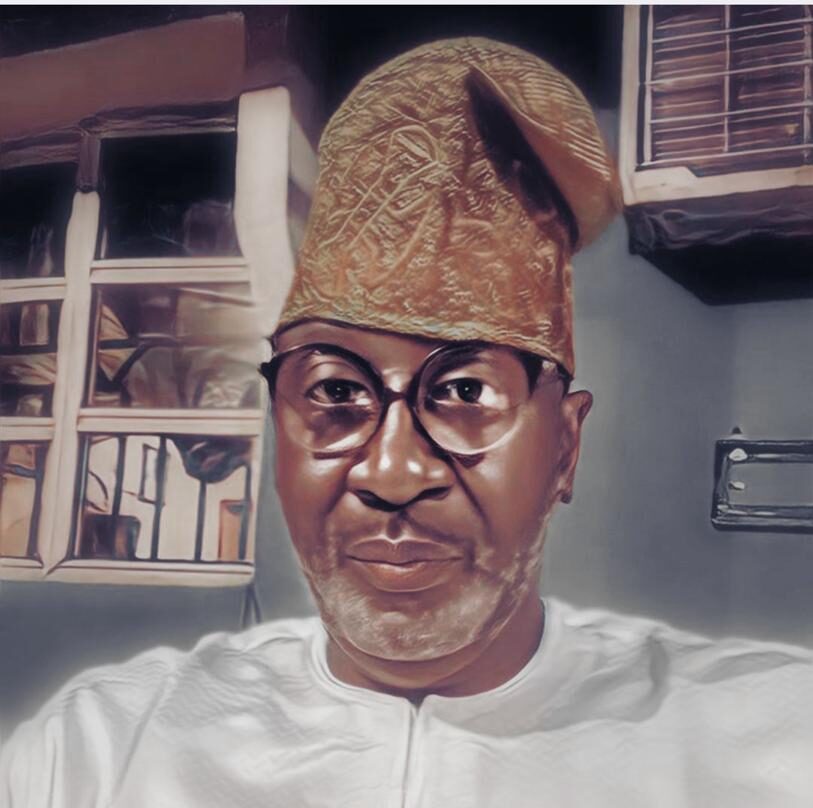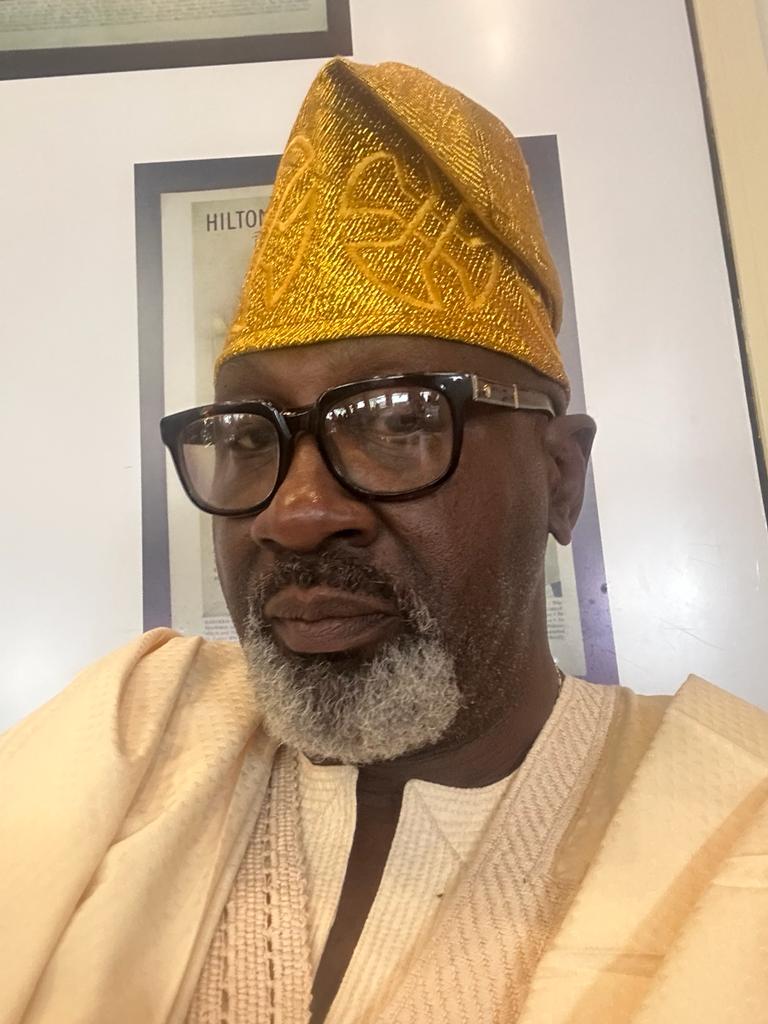BANDITRY IN NIGERIA; Conspiracy of Silence – Abayomi Odunowo
The events that occurred in Ekiti state and Kwara state last week Monday were tragic and deeply concerning. The senseless killing of two monarchs, the Elesun of Esun Ekiti, Oba David Babatunde Ogunsakin, and the Olumojo of Imojo Ekiti, Oba Samuel Olatunde Olusola, was a brutal and cowardly act. Monarchs play a vital role in the socio-cultural and political development of their communities, and their untimely deaths have undoubtedly left a void that will be difficult to fill.
To compound the tragedy, pupils of the Apostolic Faith Group of Schools, Emure Ekiti, were kidnapped while journeying in their school bus on the same day. This is a distressing reminder of the dangers that our children face in today’s society. Their safety and security should be of paramount importance, and it is unacceptable that they should be subjected to such trauma.
Just two days after these horrific incidents, the Olukoro of Ikoro, Kwara State, Oba Olusegun Aremu-Cole, was killed, and his wife was abducted by the criminals. The loss of another respected monarch and the abduction of his wife are further evidence of the escalating insecurity in the country.
These events serve as a stark reminder that urgent action is needed to address the growing threat of criminality and banditry in our communities. The government and law enforcement agencies must work diligently to ensure the safety and security of all citizens, and to bring the perpetrators of these heinous crimes to justice. The entire nation mourns the loss of these revered leaders and offers condolences to their families and communities.
The recent attack on a Yoruba community in southwest Nigeria has sparked widespread outrage and anger across the region. The mainstream media were quick to point fingers at “Fulani herdsmen” or “Fulani bandits” as being responsible for the attack. The immediate assumption of the perpetrators being of Fulani descent has only served to further stoke the flames of ethnic and communal tensions in the country.
It is understandable why there is such anger across Yoruba land. The attack on the community is seen as an act of sacrilege, a violation of the sacred bond between the people and their land. The traditional rulers have openly expressed their dismay, issuing warnings to those responsible for the attack. Many Yoruba indigenes have also voiced their outrage, calling for justice and swift action to be taken against the perpetrators.
The knee-jerk reaction to blame Fulani herdsmen for such attacks is a dangerous and divisive narrative that only serves to deepen the rift between ethnic groups in Nigeria. It is essential to approach such incidents with caution, avoiding the temptation to succumb to stereotypes and prejudice. The focus should be on seeking justice for the victims and establishing the truth behind the perpetrators, regardless of their ethnic background. Only then can the wounds begin to heal and the cycle of violence be broken.
The recent arrest of Pa Olowofela, an 80-year-old Yoruba man from Ekiti state, has sent shockwaves through the community. Olowofela, who owns a sawmill in Irele-Ekiti, has been implicated as the mastermind behind the recent wave of kidnappings and killings that have plagued Ekiti and Kwara states. The monarchs of Irele-Ekiti were among the victims of these heinous crimes, and a corpse was discovered in Olowofela’s sawmill, further linking him to the atrocities.
What is most disturbing about this case is Olowofela’s confession. He admitted to operating an army of bandits, most of whom are citizens of Mali. This revelation has brought to light the intricate web of criminal activities that operate across borders and have directly impacted the safety and security of the people in Ekiti and Kwara states.
The arrest of Pa Olowofela serves as a stark reminder that no one is above the law, regardless of their age or social standing. It also underscores the urgent need for enhanced security measures and collaborative efforts to combat the scourge of banditry and criminality that threatens the peace and stability of our communities.
As this case continues to unfold, it is imperative that justice is served, and the perpetrators of these heinous crimes are held accountable for their actions. The people of Ekiti and Kwara states deserve to feel safe and protected in their own communities, and it is our collective responsibility to ensure that this becomes a reality.
Despite recent discoveries and evidence pointing to the involvement of local insiders in the kidnappings in Ekiti state and the killings of revered monarchs in Kwara and Ekiti states, it is disheartening to observe that mainstream media organizations have yet to update their initial story about the mastermind behind these heinous crimes. This omission raises questions about the transparency and accuracy of the information being presented to the public, and whether there is a deliberate effort to obfuscate the truth.
One cannot help but wonder if there is a conspiracy of silence at play here. It is alarming that despite mounting evidence, the mainstream media seems to be holding on to an outdated narrative that does not reflect the latest developments in the investigations. This raises concerns about the media’s responsibility to report accurately and objectively, as well as the potential influence of external factors on their editorial decisions.
Furthermore, it is important to recognize that criminality and acts of terrorism cannot be attributed solely to a single group, such as the Fulani. It is essential to consider the involvement of local insiders in the perpetration of crimes, as their complicity is often crucial to the success of criminal activities in a given locality.
it is imperative for mainstream media organizations to update their reports with the latest developments in the investigations of the kidnappings and killings in Ekiti and Kwara states. Failure to do so only perpetuates misinformation and undermines the public’s right to know the truth.
Between 2015 and 2020, Benue State experienced a significant increase in the rate of killing, kidnapping, and criminality. This period saw the emergence of Terwase Akwaza, also known as Gana, as a prominent figure in the perpetration of these heinous acts. Gana, known for his involvement in various criminal activities, played an active role in the destabilization of the state during this time. His actions led to immense fear and suffering among the people of Benue.
However, amidst this wave of criminality, the media and the then governor, Samuel Ortom, were often quick to attribute every single incident to the actions of Fulani herdsmen. Without thorough investigation or evidence to support this claim, the anti-Fulani narrative dominated the conversations surrounding the insecurity in Benue State. This narrative, perpetuated by both the media and Governor Ortom, unfairly shifted blame onto a specific group and fueled ethnic tensions within the state.
Furthermore, the anti-Fulani stance adopted by Governor Ortom played a significant role in his reelection campaign. By capitalizing on the fears and prejudices of the people, he successfully secured another term in office. This manipulation of public sentiment not only detracted from addressing the root causes of the insecurity in Benue State but also exacerbated existing tensions between different ethnic groups.
The recent kidnapping of two Catholic priests in Plateau state has brought to light a disturbing revelation regarding the identity of the perpetrators. Initially, the suspects were believed to be narrative Fulani herdsmen, a common occurrence in the region. However, 48 hours ago, the security forces made a breakthrough and apprehended the true culprits. Shockingly, not a single one of them was a Fulani nor a herdsman. Astonishingly, all four of them are members of the Parish, and the mastermind behind the heinous act is none other than the Financial Secretary of the Church.
This revelation has sent shockwaves through the community and raised questions about the trust and integrity within the Church. It is deeply unsettling to think that individuals within the Church, who are meant to uphold moral values and serve as pillars of the community, could be involved in such criminal activities.
The incident serves as a stark reminder that crime and corruption can exist in any institution, and it is essential for all organizations to maintain a system of checks and balances to prevent such deviations from occurring. It also underscores the importance of thorough and unbiased investigations to uncover the truth and prevent the spread of misinformation and scapegoating. This unfortunate event should prompt a reevaluation of security measures and internal oversight within the Church to prevent similar incidents from happening in the future.
In recent times, there has been an unfortunate trend of attributing criminal activities to specific ethnic groups or religious affiliations. This has led to the stigmatization and marginalization of innocent individuals who happen to belong to these groups. It is important to recognize that criminal behavior is not limited to any particular ethnicity, nationality, or religion. While it is true that there may be individuals from certain groups who are involved in criminal activities, it is unfair and unjust to generalize and stereotype an entire population based on the actions of a few.
When crimes are committed, it is crucial to ask the right questions and demand appropriate responses. Instead of profiling a whole ethnic group or religious community, efforts should be focused on unmasking the real perpetrators and holding them accountable for their actions. By doing so, justice can be served without unfairly targeting innocent individuals.
It is essential to remember that criminals come from all walks of life and are not limited to a particular group. Therefore, it is imperative to avoid succumbing to sensationalism and instead focus on combating crime through fair and just means. By recognizing that criminals exist across all ethnicities, nationalities, and religions, we can work towards a more inclusive and just society.
As for the mainstream media, I implore them to prioritize reporting facts over sensationalizing news for the purpose of gaining readership. It is essential that the media upholds its responsibility to provide accurate and unbiased information to the public. By doing so, they can contribute to fostering a more informed and engaged society.
It is undeniable that the media plays a significant role in shaping public opinion and influencing societal discourse. Therefore, the dissemination of truthful and objective reporting is crucial in ensuring the public remains well-informed and able to make informed decisions.
It is important for the media to resist the temptation to pander to the interests of specific sections of their audience. Instead, they should prioritize journalistic integrity and strive to provide a balanced and comprehensive view of events.
In the same vein, it is vital for the media to be mindful of the consequences of their reporting, particularly in a diverse and multicultural society like Nigeria. Sensationalizing news can perpetuate division and misinformation, which can have far-reaching and detrimental effects on society as a whole.
In conclusion, the mainstream media should strive to report facts and provide a fair and unbiased representation of events. By doing so, they can contribute to a more informed and united society. May Nigeria experience greatness, and may God bless patriotic members of the security agencies as they work to ensure the safety and prosperity of our nation.
Otunba Abdulfalil Abayomi Odunowo
National Chairman AATSG
8th February, 2024.
Do you have any information or event for TribuneTimes to publish or cover? Kindly Call us on +2349053535322 or send us message on Whatsapp number +2349053535322 or send us an email here





